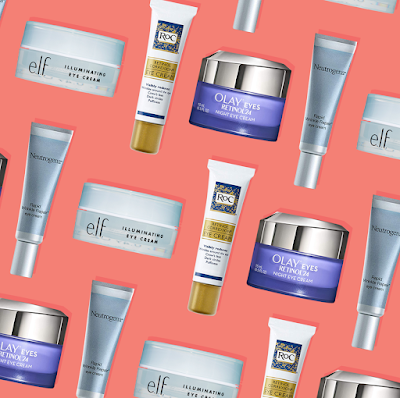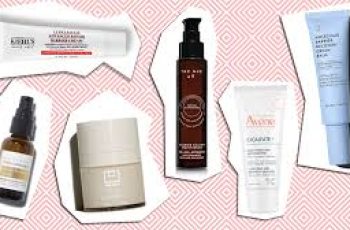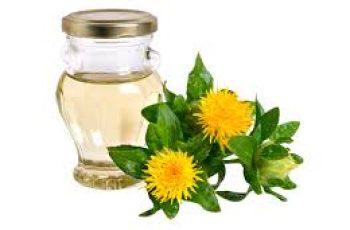
Salicylic Acid or Niacinamide?
If this isn’t your first rodeo and you’re new to skincare, you might be wondering how you can fight blackheads with two skincare ingredients that work so differently.
That’s what we’re going to focus on today. So if you’re wondering whether you should use salicylic acid or niacinamide to get rid of blackheads, read on to learn more.
What is Niacinamide?
Niacinamide is a form of vitamin B3 that’s found in many vitamin-rich foods, like kale, leafy greens, and almonds. With its impressive multitasking abilities, it plays an important role in keeping your skin healthy.
Niacinamide’s benefits for skin include its ability to hydrate, protect the skin from external aggressors, and retain moisture in the underlying layers of the skin. You’ll notice a noticeable reduction in signs of aging, like fine lines and wrinkles, and a noticeable improvement in skin tone and texture. One final benefit of Niacinamide is that it regulates the skin’s sebum production, helping to keep both oily and acne-prone skin types balanced, hydrated, and healthy. What is Salicylic Acid? Salicylic acid is one of the most commonly used beta hydroxy acids (BHAs) and is considered effective for acne-prone skin as well as other blemishes and breakouts. As a chemical peel, it removes dead skin cells and debris that accumulate on the surface of the face. The unique benefit of salicylic acid is that it is oil-soluble, which means it can penetrate oils, deep into pores and remove bacteria, dirt and excess sebum. Salicylic acid is less versatile than niacinamide, being more focused on exfoliating and reaching areas of the skin that are not affected by other chemical peels, such as the popular alpha hydroxy acids, glycolic acid and lactic acid. This BHA is so effective that you have to incorporate it into your daily routine properly yourself.
This is recommended to avoid unwanted side effects such as severe dryness, irritation and redness. People with dry and sensitive skin should consult a doctor or dermatologist before using salicylic acid on their face. People who are prone to oiliness should remember not to use too many products containing this acid as it can cause the outer layer of the skin to dry out and form streaks.
Does Niacinamide Help With Blackheads?
Yes, Niacinamide helps remove blackheads, but it doesn’t remove blackheads on its own, it works to prevent them from forming because it reduces inflammation, regulates sebum production, and minimizes the appearance of pores.
All while ensuring that the skin barrier remains fully functional with the correct water and oil levels. This is extremely important for the health of your skin and the overall appearance of your complexion because it reduces signs of damage and
prevents further damage.
Which is better, Salicylic Acid or Niacinamide?
This is one of the most difficult questions when it comes to these two powerful ingredients. The truth is, neither of them is better than the other as they each have unique benefits for the skin.
Salicylic acid is very effective at cleansing the complexion, ridding it of a barrier of dead skin cells and preventing active ingredients in other skincare formulas from being absorbed into the skin. It differs from
Niacinamide by increasing facial hydration while reducing imbalances in the outer protective barrier.
Does Niacinamide Help with Blackhead Removal?
As I mentioned before, Niacinamide has anti-inflammatory properties, which basically means that it targets any inflamed areas and prevents acne from developing into active spots and pimples.
While niacinamide can’t remove blackheads that have already formed on your skin, it can reduce their frequency, resulting in fewer spots and blackheads over time.
Can niacinamide and salicylic acid be used together?
Absolutely! These two ingredients work together to create an impressive combination skin, especially for oily and acne-prone skin. We often find that people with oily skin tend to overuse salicylic acid-rich products,
in the hope that they can use it to cleanse their skin.
Your question is that after cleansing, it is important to moisturize your skin. Then niacinamide can intervene and retain the moisture of the skin. Put these together and you will find that salicylic acid is good for your complexion, because she
with the help of niacinamide and its moisturizers, removes all impurities while eliminating signs of dryness.
Can salicylic acid remove blackheads?
In fact, 100% removal of blackheads is one of the main benefits of salicylic acid for the skin. The chemical exfoliation properties of BHA remove all impurities, bacteria, and surface debris before they can accumulate and form blackheads and other blemishes.
If you already have blackheads, you can remove them from your skin with a salicylic acid-rich skincare product, such as an exfoliating tonic or serum. With regular use, your complexion will become clearer.
But be careful: Don’t use salicylic acid too often, especially if you’re not familiar with the ingredient, as it can cause dryness, discomfort, and redness. If you have any concerns, I encourage you to consult your doctor, dermatologist, or licensed professional to find the best product for you and your skin.
Does Niacinamide Remove Acne Scars?
Niacinamide is an important skin nutrient that offers a variety of benefits, from improving skin hydration to reducing the appearance of acne scars. There’s nothing more frustrating than having acne and then realizing that the aftereffects of acne scars are still there. If left untreated, these scars can remain on your skin for a long time. Incorporating Niacinamide into your daily routine can help minimize the visibility of these dark spots and hyperpigmentation. Your skin will feel balanced, moisturized, and as healthy as it can be.


